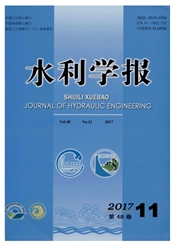

 中文摘要:
中文摘要:
针对水资源非完全市场化、主要以政府主导的定价情况,构建价格政策模拟模型,分析水价比价、差价及整体变动对国民经济和居民收入等指标的影响,为合理制定水价提供依据。基于一般均衡模型方法,利用GMAS软件,建立将水要素纳入到要素供给中、将水行业单独考虑的水价政策模拟模型,开展水价格政策模拟分析。以北京市为研究区开展实践应用,结果表明,在适当的调价范围内,水价提高和政府涉水补贴等政策对物价水平、经济增长、产业结构及居民生活水平影响不明显,但是对水生产供应企业影响意义重大。在水价偏低、水生产供应企业收支不平衡的情况下,水价提高可有效提高水生产供应企业收入,减少企业亏损状况;同时水价提高还可以有效降低水资源使用量,对缓解北京市水资源短缺、减少由于水资源过度开发导致的水资源耗减和水环境退化问题具有积极的作用。
 英文摘要:
英文摘要:
Aiming at the situation of non-market pricing system of water resources, a general equilibrium model for water price policy simulation (WaGE) has been built up to analyze the influence on national economy variation and household income, etc. and to establish a reasonable water price. Based on general equilibrium theory, WaGE is able to analyze and simulate water price policy, involving water element in the element supply system and separating water related enterprises from industries. Taking Beijing as the re-search area to implement practical application, the results show that there is little influence on economic growth, industrial structure, and residents living level by appropriate water price rising and water related subsidy, while the positive effect on the water supply enterprise is significant. Under the circumstance of low water price and imbalance of water supply enterprises income and expenditure, improving water price could effectively enhance the income of water supply enterprises and reduce the water usage, which would take a positive role on reducing the depletion of water resources and water environmental degradation due to excessive development of water resources.
 同期刊论文项目
同期刊论文项目
 同项目期刊论文
同项目期刊论文
 期刊信息
期刊信息
